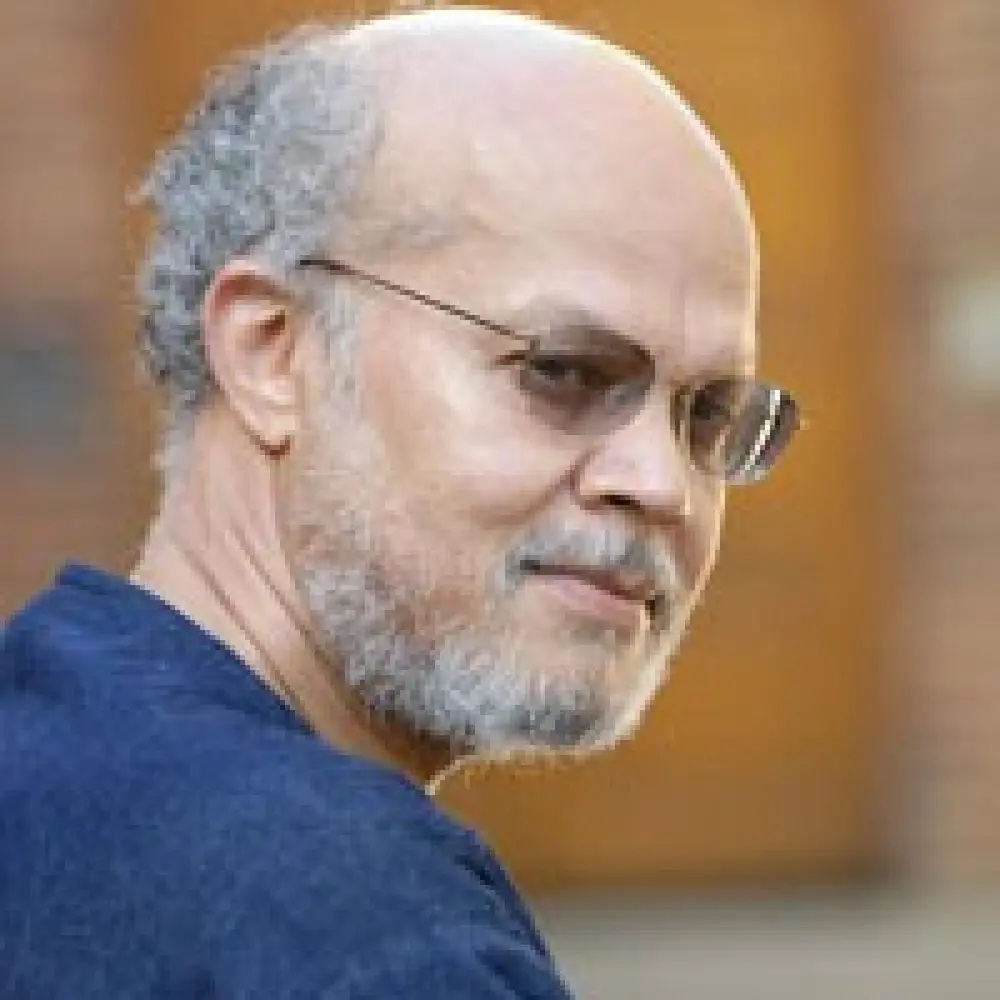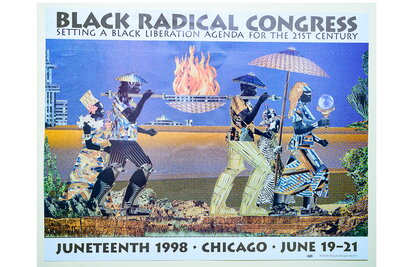
The faculty and personal papers of Gerald McWorter, a University of Illinois Urbana-Champaign professor emeritus of African American studies and of information sciences, show the arc of a freedom narrative, from his ancestors’ founding of New Philadelphia, Illinois — the first U.S. town to be incorporated by a Black man — to McWorter’s scholarly work in Black studies and his activism in the Black liberation movement.
McWorter — who is also known as Abdul Alkalimat — donated his papers to the University Archives. During his decades as a professor, activist and bookstore operator, McWorter has acquired and kept documents that reflect 60 years of Black intellectual history. Now his vast collection will be preserved at the Archives as part of the Gerald Arthur McWorter Papers.
McWorter has been a pioneer in the field of Black studies; an activist involved in the Black liberation movement of the 1960s and '70s; and a leader in preserving the legacy of New Philadelphia, Illinois, and working for its National Historic Site designation.
"In order to know where to go, you've got to know where you have been. This collection is a record of where we've been — me, my family, really all of us," McWorter said.
Susanne Belovari, the archivist for faculty papers, began appraising McWorter's materials a few years ago. She said the collection is unusual in its size, which she estimates to be about 600,000 items. The papers that are accepted by the Archives for the collection will be available in summer or fall 2025.
Belovari said McWorter's collection also is unique because it includes a mix of family and personal papers, faculty papers and institutional records for many Black liberation organizations. The materials cover Black history and the Black experience relating to subjects such as rural and urban life, education, the Civil Rights Movement, politics, language, Black women, literature, information technology, Chicago and Illinois, Black liberation and Malcolm X, workers' and community movements, Marxism and sociology.
The collection includes rare primary source materials such as pamphlets and posters of Black activist groups, political buttons and newspapers of small or marginalized groups that are not easily available — making them particularly valuable to researchers, Belovari said. Information from McWorter that provides context for the materials and supplements them with names and dates adds to their historical value for researchers, she said. His collection also includes video and audio recordings of lectures in various formats.
McWorter was involved in or familiar with dozens of activist organizations in the 1960s, including the Student Nonviolent Coordinating Committee and other groups that were writing and publishing papers that debated ideas around the freedom struggle of Black Americans. His archive includes speeches, summaries of conferences, position papers and analyses of issues documenting the intellectual history of the Black liberation movement.

The McWorter materials offer a reflection and response to political, economic and cultural issues and make the historical portrayal of society more accurate and complete, Belovari said.
McWorter said he saved a lot of material because "we had a sense we were making history. We believed what we were doing was important." His wife, Kate Williams-McWorter, a professor emerita of information sciences, and his sister, Sandra McWorter Marsh of Chicago, helped him preserve and organize the materials over the years.
McWorter wrote a book, "The History of Black Studies," published in 2021. His 50 boxes of archival materials relating to Black studies programs, many of which are celebrating 50-year anniversaries, provide significantly more detail than is contained in the book, including course catalogs, class descriptions, syllabi and event announcements, he said.
McWorter said the scholarly work of early Black Ph.D. students was marginalized, then resurrected as part of the establishment of Black studies programs and the demand for recognition of Black scholars in academic publishing. He said it is significant that the Archives is accepting these materials at the same time that movements have been growing against diversity, equity and inclusion and Critical Race Theory.
"Creating this archive is an act of resistance against this notion of marginalizing and silencing the history of how the university has been transformed," he said.
Belovari said these types of materials can be difficult for a university archive to acquire because some scholars don’t want to work with an institution. Also, family members may not understand their significance and preserve them.
"People who have traditionally been invisible through life experiences become distrustful. A lot of them wouldn't trust working with archives so the materials disappear," she said.
McWorter said he realized the importance of preserving his collection of papers when he saw that none of his peers were archiving their materials related to Black studies and Black freedom.
"I want our generation to be remembered and be respected because we were really serious and did the best we could," he said. "What a wonderful experience that was. It was sort of like a ray of light in a cloudy sky. It was a moment of freedom and liberation for everybody."
The collection includes property transfer records and family papers and photographs that provide details about life in New Philadelphia and connect it to abolitionist movements. McWorter's great-great-grandfather, "Free Frank" McWorter, established the integrated western Illinois town of New Philadelphia in 1836 after buying himself and 15 other family members out of slavery. The town was a stop on the Underground Railroad. McWorter said the materials can help the National Park Service tell the story of the site and its significance.
Belovari said McWorter's materials will be of interest to researchers of African American history, slavery and Black liberation movements, and documents on the founding of Black studies programs will complement other collections at the Archives such as that of a founder of women’s studies programs.